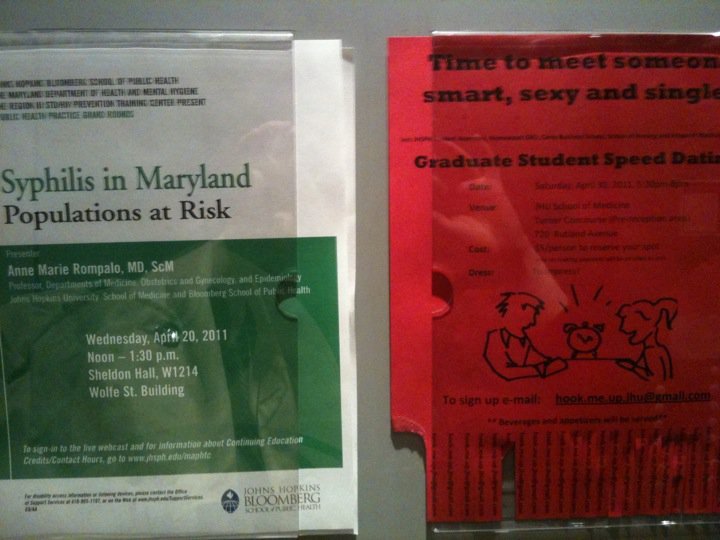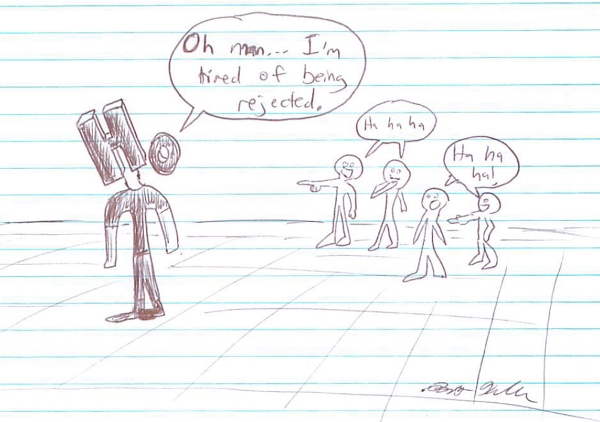Yesterday morning I came across the gentleman pictured below in New York's Union Square. I've been meaning to take more pictures of "things you only see in NYC" -- a category which generally consists of extremes of pets and fashion -- but I think this deserves its own post:

He was either selling or trying to give away copies of a book titled Uropathy: The Most Powerful Holistic Therapy by one Martin Lara. Since the review of Uropathy on Amazon.com is from the Village Voice, I assume that the evangelist was either Lara or one of his disciples. The review:
Vitamin Pee! Urine is a natural remedy, so raise a glass! That's what alternative therapist Martin Lara wants everyone to do. In his Uropathy: The Most Powerful Holistic Therapy, pee's the ultimate cure-all. Gagging aside, it's not so unconventional: former Indian prime minister Morarji Desai guzzled ounces each morning, observing an ancient Hindu practice. Lara learned about it 11 years ago, when the self-taught therapist he's never studied traditional medicine became disenchanted with science's inability to cure his ailments. Since then he's lectured to thousands. Not any pee will do it must be your own, which Lara says is a nontoxic biofeedback stimulator that boosts immunity by activating the lymphatic system, thus restoring the body to an internally balanced state of health. Dosages range from a few drops of Lara's "Ultimate Universal Remedy" an elixir of water, urine, and white rum to several ounces for serious conditions like cancer, dysentery, or Alzheimer's. Of course, not everyone is ready for this leap of faith. On his Web site Lara argues against obsessing over taste and smell: "Urine is a sample of what is flowing through your veins and repulsive urine should be a motivation to improve the internal conditions, rather than an excuse for not using Uropathy." -- The Village Voice
He was quite earnest. I didn't engage him in conversation because two other passersby were already talking to him. A girl was explaining that urine is what your kidneys decide your body doesn't need. But she wasn't just explaining it, she was disgusted, and angry. His response was similar to a major defense of homeopathic medicine, that the "toxin makes the remedy" (or something like that). The girl got exasperated and left with her friend, and you could hear her ranting as she walked away. I chose not to continue the conversation because I was on my way to meet friends, but in hindsight I wish I had stayed because there are some questions I don't have the answers to:
- How often does he talk publicly about this? What does he do for a living? Ie, is this it, or does he have a boring day job and this is his true passion?
- Does he feel that drinking urine has cured whatever health problems that he originally sought help for? (I would guess so.)
- Why does he think drinking urine has not been more widely adopted?
- Does he think that his approach (especially the t-shirt and public 'evangelism') is the most effective way to spread his message? I would guess he enjoys the attention on some level, but also promotes his beliefs through other, more effective channels.
- What are the typical reactions he gets? How many people stay and talk with him at length, and of those how many eventually adopt his therapy?
- I'd like to talk a bit about Western medicine. Not necessarily the biomedical interventions we favor, but the scientific process by which we (ideally) establish that a practice is beneficial. Does he think urine therapy could be tested by a randomized controlled trial? If not, why not?
- If the passerby had stuck around: why did she choose to argue with him? Did she really think that a guy wearing a bright yellow "Drink Urine" t-shirt in Union Square was likely to change his mind? And for the man himself: how common is her argumentative reaction?
I think a natural first reaction to something this out of the ordinary is laughter or mockery, or the assumption that he's clinically insane. On further thought, what he believes -- in factual support and argumentative method, if not in substance -- isn't that different from much of alternative medicine, and his methods have been widely adopted by many mainstream religions and social movements as well as less-respected 'fringe' beliefs. If those are both true, why isn't his belief more widely adopted? Is it just too taboo?
I think I could have learned valuable things about the mixture of reason and emotion and belief that guide human choices if I had stayed and asked some of these questions. I don't think I'll change his mind, but I plan to look for him if I'm ever strolling through Union Square on a weekend again.
(Note: evidently "urine therapy" is a thing. The Wikipedia page starts with "In alternative medicine..." -- never a good sign.)

